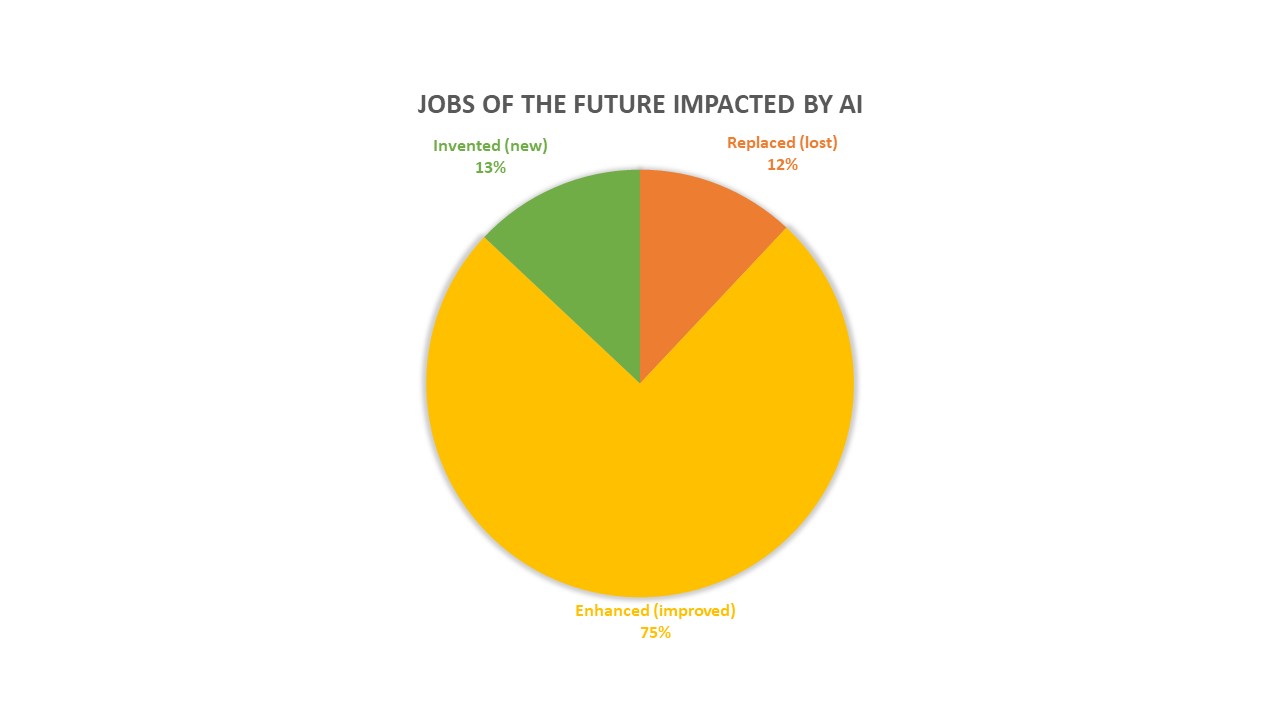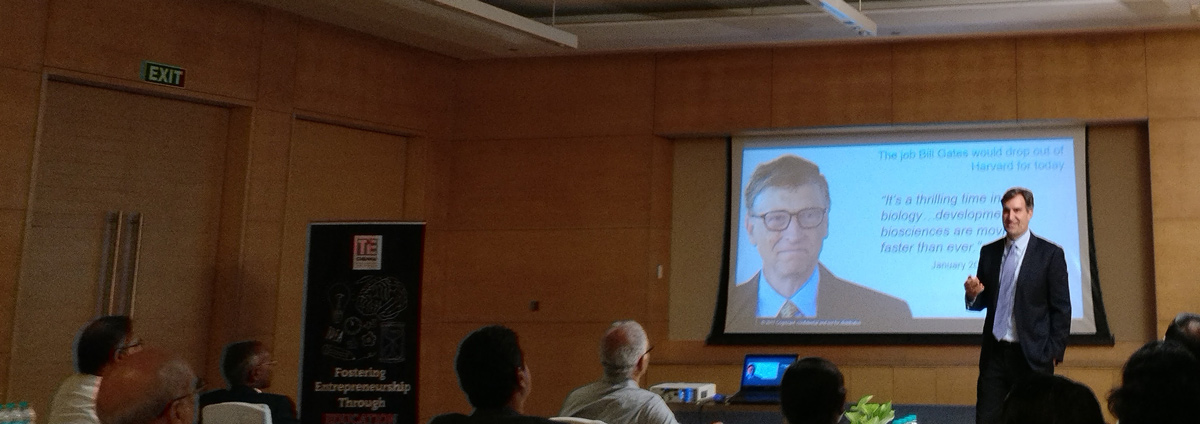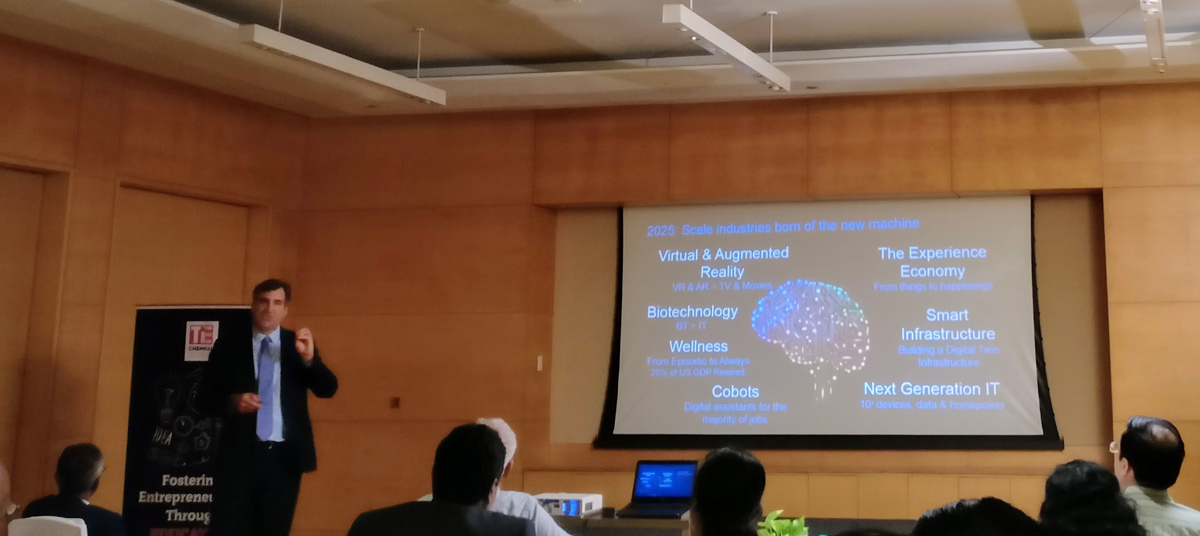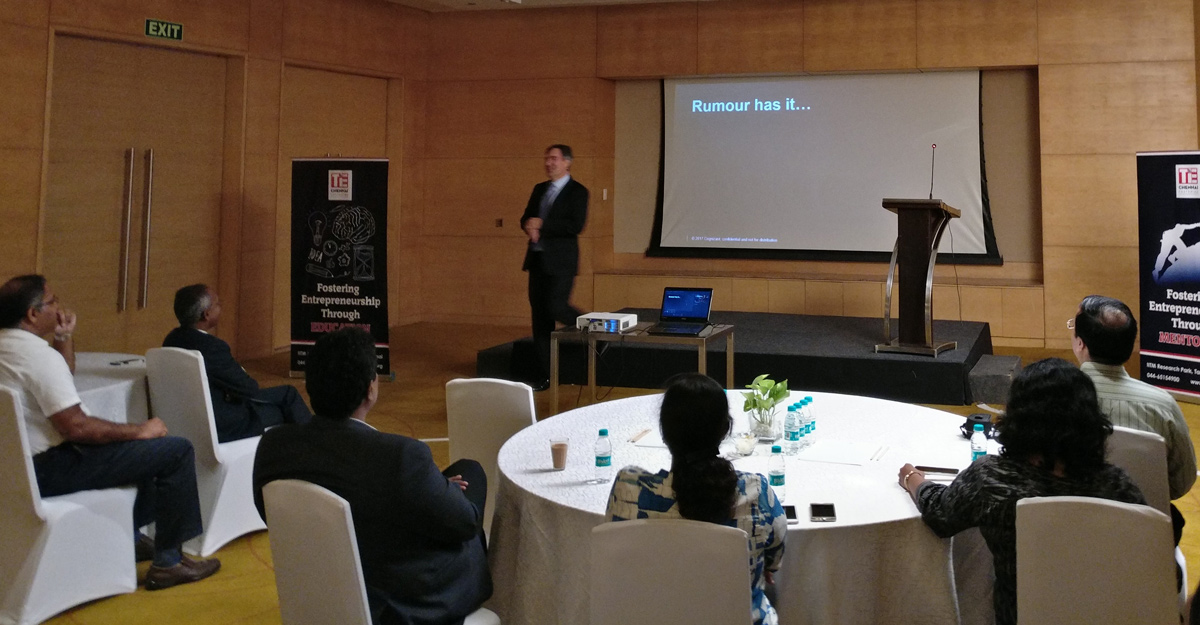TiE Chennai had organized a talk today about a topic that is on the minds of many across industries – “What to do When Machines do everything”. The talk was given by an expert on the subject Malcolm Frank, EVP, Cognizant and author of a book on the same title – What To Do When Machines Do Everything: How to Get Ahead in a World of AI, Algorithms, Bots, and Big Data.
Here is an excerpt from the notes I took during the talk.
Introduction: Overall there is an increase in employment numbers across industries worldwide, but a negative sentiment is certainly prevalent and going around. If you take IT industry, in particular, following are the headwinds pointed out by the pessimists say:
- The industry has become mature, new business and growth for a company comes at the expense of the competition and not new markets, hence a natural decline is in order.
- The Industry started growing during Davos era of globalisation. Today in many parts of the world like in the USA and to a certain extent in Modi’s India there is a growing nationalism, which is not a friendly environment for the industry.
- With AI & Automation on the rear-view mirror, jobs are going to be taken away by machine and people will have more time on their hands, a potential social problem. There is a joke about a wife who told her husband who was recently spending more time at home – “Honey, I married you for good and bad. But I didn’t marry you for being around lunch”.
In the next one hour, Malcolm put forward his argument that if the above were your case, why it is UNTRUE. The reasons why the pessimistic views are wrong are that it ignores the arc of history, what we are going through with AI & Automation will be a fourth industrial revolution. That will free human talent from mundane jobs and focus on more productive work; it displays a remarkable lack of imagination on human potential. Brian Arthur of Mckinsey predicts that by 2025 the second economy (digital economy) is going to be as large as the entire 1995 physical economy.
As users, we have seen we take AI when available for granted. We don’t need to fear it. For example, with apps like Siri or Google Maps that are powered by AI, for the first three days we are wowed by it, then from the fourth day, we stop paying attention.
When we think of Jobs that will be impacted by AI, there are 3 scenarios and the estimate of their individual impacts on (today’s) jobs are: Jobs that are Replaced will be 12%, Jobs that are Enhanced will be the bulk of 75% and new Jobs that will be invented/created due to AI will be 13%. 
When we look at the future of jobs, we need to look back at the past and see how a new invention then had an impact. For example, In 1830 the first lawn mower was invented by an Englishman, Edwin Beard Budding; he was not sure of its utility and reception from society, so he tested them only in the nights. But in the following century due to the availability of flat grass, Sports which was then simply a pastime grew to become a multi-billion dollar industry across the world. This kind of unintended effect of an invention is called Budding effect, we will see similar examples with AI in future.

In Discovering the future, there are 7 scale industries that we can focus on, due to the new machine:
- Cobots – Humans will be assisted immensely by machines. Professionals like Teachers, Coaches, Doctors, Engineers will be provided with tools and information customised for each user beyond our imagination. We need to understand that – Man is good in the art of the job, Machines is good in the science of the job.
- Wellness – In the future, we will look back at the times when diagnoses were done by Humans and they had a high false rate. Machines will become smart enough to predict when you will get sick so that you can take appropriate actions. From being an Organ donor we will see people becoming Data donor.
- Biotechnology – This industry (BT) will be greater than IT by 2025. DNA sequencing will be the largest data source, more than today’s YouTube.
- Virtual and Augmented reality – VR is going to be bigger than TV in 2025. We are going to be presented with contextual information in an ambient fashion.
- Experience Economy. Machines will enhance and create new human experiences. For example, Airbnb is moving to their second act which is about creating experiences around travel – like an experience of owning a vineyard. It’s about creating and fulfilling your experience needs.
- Smart Infrastructure – About making the physical world smarter. 152,000 “things” are being connected to the Internet every minute. Smart stores are about bringing say the best of Amazon to physical stores. Similarly, you will see Smart Spaces, Smart Hotels, Smart Restaurants.
- Next generation IT – Today this is a $3 trillion dollar industry worldwide. Liberally speaking, 1 out of every 5 jobs is related to IT. With the arrival of Quantum computing which can be 100 million times faster than today’s computer, we will have enormous new possibilities.

Footnote:
- Check out Mary Meeker of KPCB 330+ slides on Designing the future.
- Remember, making things un-suck is the real mother of invention.
- For all these AI systems of the future, Garbage IN is Garbage OUT in terms of Data. To handle it, for example, Google did a smart move when they had to train their self-driving car – instead of the machine learning from average drivers they make it look at and learn from professional drivers.
- We need to carefully understand the bias of data and the bias of humans who are being studied. We need to think about how in the future we will handle a situation where we unable to figure out or understand why a machine came up with a result – we may have no way to figure it out or reverse it.
Overall, an informative talk that gives us hope for the future.


